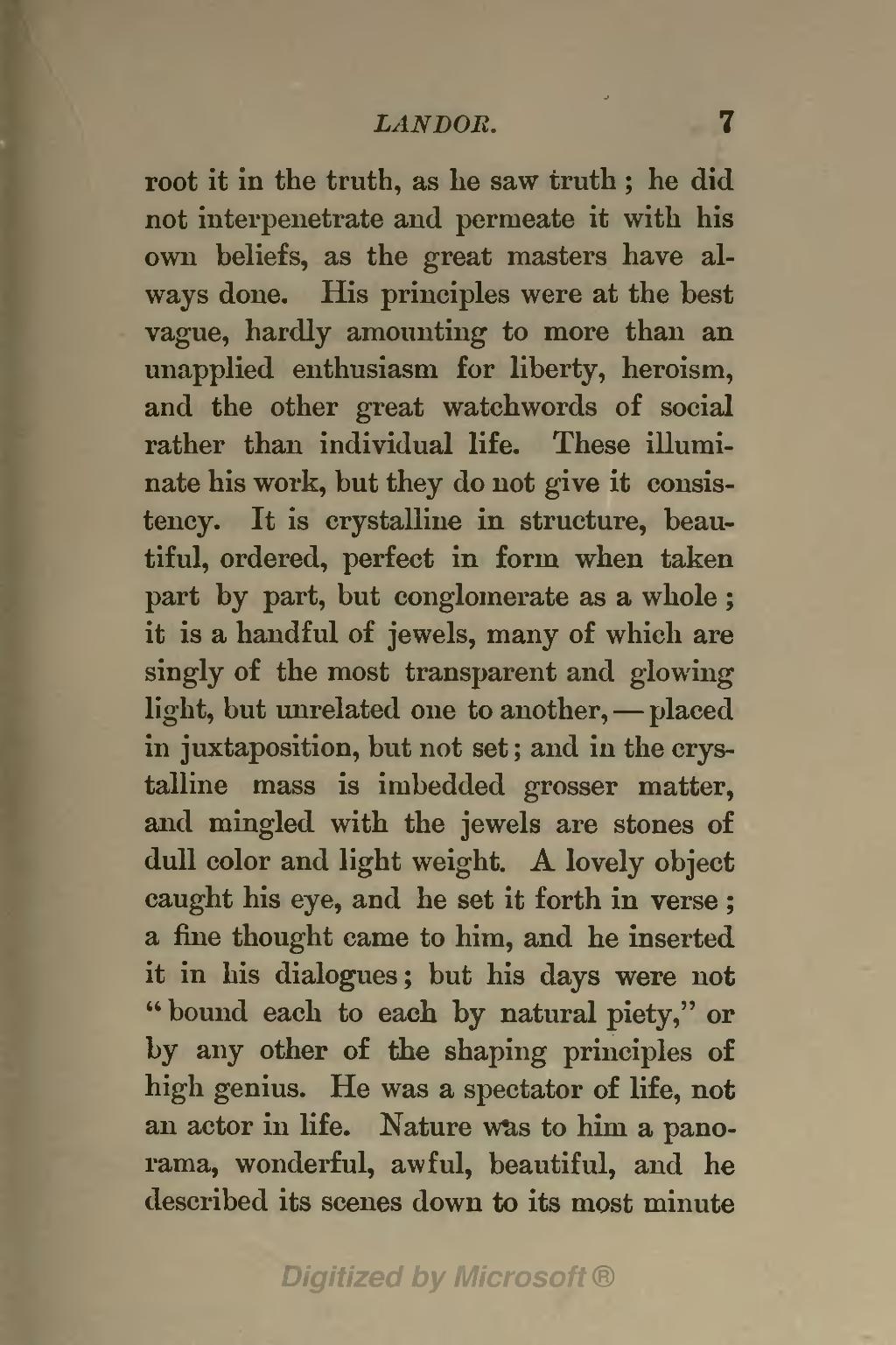root it in the truth, as he saw truth; he did not interpenetrate and permeate it with his own beliefs, as the great masters have always done. His principles were at the best vague, hardly amounting to more than an unapplied enthusiasm for liberty, heroism, and the other great watchwords of social rather than individual life. These illuminate his work, but they do not give it consistency. It is crystalline in structure, beautiful, ordered, perfect in form when taken part by part, but conglomerate as a whole; it is a handful of jewels, many of which are singly of the most transparent and glowing light, but unrelated one to another, placed in juxtaposition, but not set; and in the crystalline mass is imbedded grosser matter, and mingled with the jewels are stones of dull color and light weight. A lovely object caught his eye, and he set it forth in verse; a fine thought came to him, and he inserted it in his dialogues; but his days were not "bound each to each by natural piety," or by any other of the shaping principles of high genius. He was a spectator of life, not an actor in life. Nature was to him a panorama, wonderful, awful, beautiful, and he described its scenes down to its most minute
